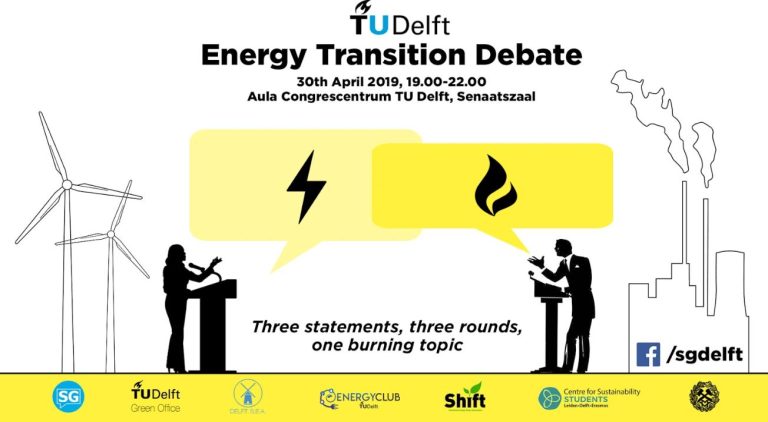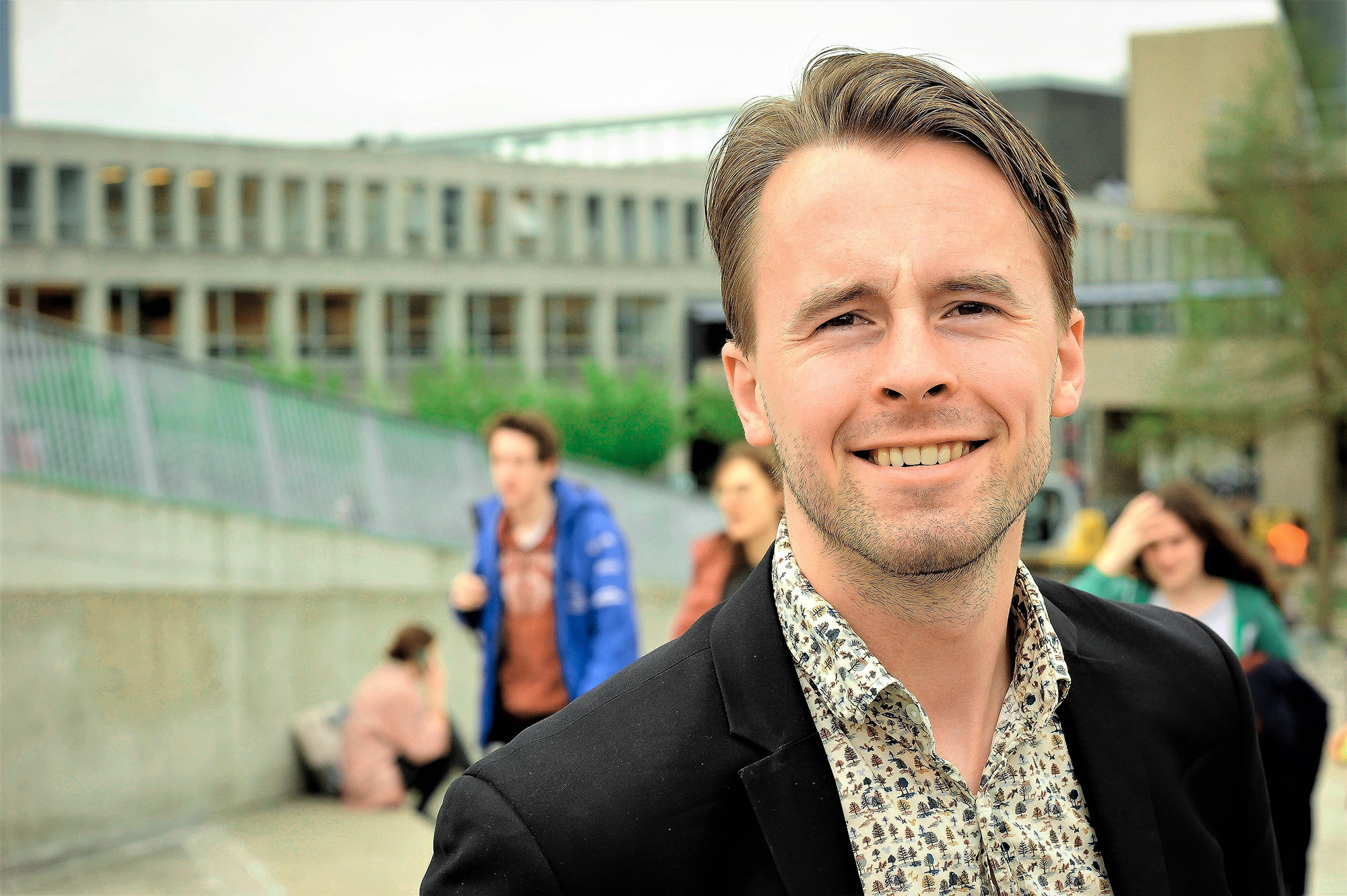Student Rutger Broer believed that TU Delft needed a debate about the energy transition. It will be on Tuesday 30 April. Why is he also giving the stage to climate sceptics?
Rutger Broer: "I know that there are TU Delft students who are also toying with climate sceptic ideas." (Photo: Marjolein van der Veldt)
The energy transition and climate are subjects of radical differences in opinions, as demonstrated by the seats gained by both the Forum voor Democratie (climate change sceptics) and GroenLinks (climate policy advocates) in the recent Provincial State elections. Climate marches and strikes, such as the student strike in the Amsterdam today, have become a regular feature of our streets. Rutger Broer, an industrial ecology student, believes that TU Delft should engage with this debate so he initiated the Energy Transition Debate on Tuesday 30 April in the evening. The debate will centre around three major questions. In Broer’s words, these are:
- why is the energy transition needed;
- who is responsible for what (who pays?);
- what can Europe do?
Broer and co-hosts from six Delft student associations form the organisational committee. They have managed to enlist the Rector Magnificus, four European Parliamentarians, TU Delft climate scientists and one climate sceptic for the debate.
What does the electoral victoryby the Forum voor Democratie in the Provincial State elections have to do with this debate?
“The seats won were not the catalyst for the debate – we were already working on it – they only prove that many people are questioning the need for the energy transition. I am convinced that we need the transition from a society based on fossil fuels to one which derives its energy from renewables. Personally, I believe that this will help address climate change and that we need to act quickly. At the same time, I see that many people around me have questions. Before I really dived into this subject, I didn’t always have answers to criticisms. For example, are the statistical methodologies used in climate science always reliable? What about balancing costs and benefits? If you analyse the arguments in greater depth, you see that it is a complex subject and that some criticisms may be right while others are clearly not. Without understanding the context, differentiating between them is difficult.”
The first round of the debate will be on why we need to engage with the energy transition. This is not up for discussion at TU Delft so why the debate?
“There may indeed be scientific consensus, but in society there is a large group of people who question the degree of impact of human activity on climate change and the form that the energy transition should take. I see this even in my own circle of family and friends. Is there something wrong in the communication or do people question this based on well-grounded reasons? I would like this to be addressed in the debate.”
‘I don’t see this as a dry scientific congress, but rather as feeding the societal debate’
For the critical climate sceptic voice you have invited TU Delft alumnus Theo Wolters. There are scientists who say that they do not want to give climate sceptics legitimation by entering into debate with them. Why do you believe that this should be done?
“I don’t see this as a dry scientific congress, but rather as feeding a societal debate. In a debate it can be interesting to hear a voice that disagrees with the scientific consensus. People at the TU Delft should understand what the different perspectives are and how to deal with them. I know that there are TU Delft students who are also toying with climate sceptic ideas. My idea is to show the wide range of opinions. By exposing visitors to different ideas, I hope to demonstrate the complexity of the issue.”
Are you not concerned that visitors will think that it is so complex that they can’t do anything about it?
“I can’t direct people’s thoughts, but we do of course ask our speakers to talk about potential solutions. There are pessimists and optimists. It may turn out that the first group delves into the subject more deeply while the second group thinks that they should do something about it. I leave this to the visitors themselves.”
Why are you opting for a European perspective during the debate?
“In the climate discussion, there is one big dampener – that we, the Netherlands, are too small to tackle the energy issue. But as one of the founders of the European Union, the biggest market in the world, we can exert influence. There are European elections ahead of us and we have invited four (candidate) European Parliamentarians standing for election to discuss what Europe could do. They are from D66, VVD, GroenLinks and the pan-European political party Volt.”
You took the initiative to organise this debate yourself. Should we assume that you think that TU Delft is not doing enough itself?
“I think that TU Delft could do more. It tends to preach to the converted, rather than to people outside the academic community. If many people outside TU Delft are unsure about the findings of climate research and the need for the energy transition, to me this shows that academics need to explain their findings better to the outside world.”
Can you handle fact free politics?
“The freedom of expression is central to a public debate as long as the claims are based on the truth. Framing is an art. Perhaps science can learn from it.”

- Energy Transition Debate
- Tuesday 29 April, 19:00 – 22:00
- Senaatszaal Aula TU Delft
- Free admission
- Organisation: Delft Sustainability Energy Association, Green Office TU Delft, TU Delft Energy Club, Centre for Sustainability Students, IESA Shift, Mijnbouwkundige Vereeniging, Studium Generale.
Do you have a question or comment about this article?
s.m.bonger@tudelft.nl


Comments are closed.